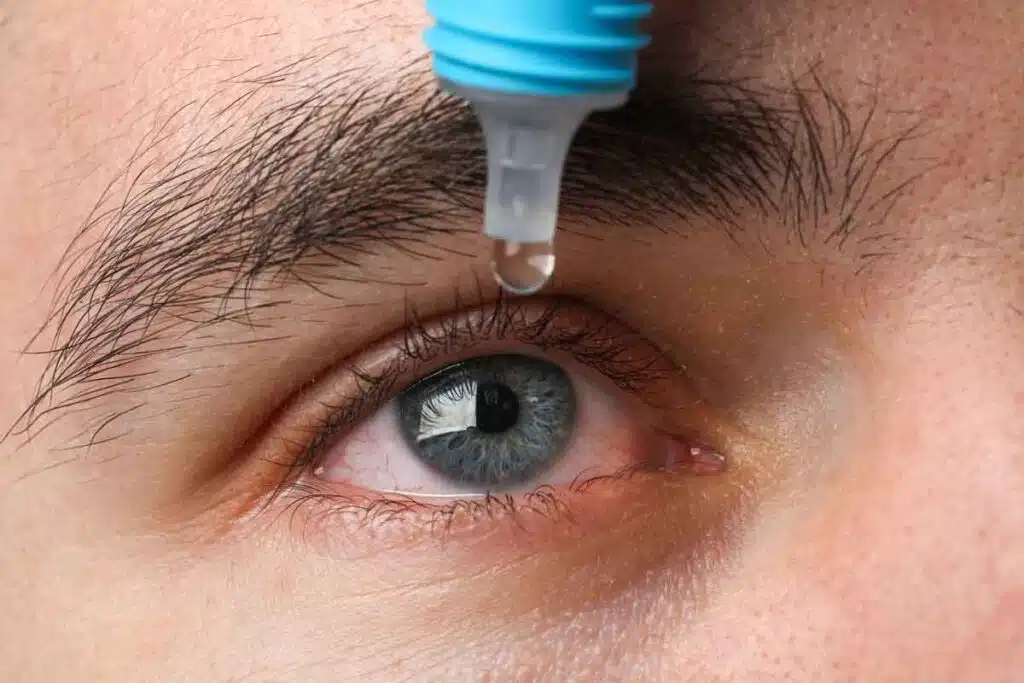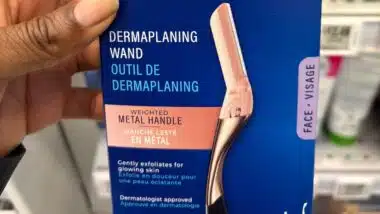
Eye drop settlement overview:
- Who: Similasan Corp. has agreed to a $3.57 million settlement with eye drop consumers.
- Why: The plaintiffs say the company sold its eye drops without FDA approval and required safety precautions.
- Where: The eye drop settlement was filed in Colorado federal court.
Similasan Corp., a Swiss company known for its homeopathic eye drops, has agreed to a $3.57 million settlement after being accused of selling its products as drugs without U.S. Food and Drug Administration (FDA) approval and failing to meet necessary safety standards.
Similasan and plaintiffs David Plowden, Mario Ortega and Kamille Faye Vinluan-Jularbal filed the proposed settlement on Nov. 6 in a Colorado federal court.
This preliminary agreement stems from a consolidated consumer lawsuit filed in Sept. 2023, which claimed that the company violated consumer protection laws across several states.
The consumers alleged that Similasan marketed its eye drops as treatments for various ailments, such as pink eye, despite lacking FDA approval.
The lawsuit also stated that Similasan’s manufacturing process did not adhere to recognized good manufacturing practices and contained ingredients the FDA does not consider safe or effective.
Similasan responded to the claims in November, asserting that its products were clearly labeled as unreviewed by the FDA.
Settlement will create multimillion-dollar fund for buyers of Similasan eye drops
Under the proposed settlement, Similasan will set up a $3.57 million fund for consumers who bought its eye drops.
Shoppers will be able to claim $2.50 per product, with a maximum payout of $10 for those who cannot provide proof of purchase. If the total claims are lower than expected, eligible payouts could be increased proportionally.
The agreement also allocates up to one third of the settlement fund for attorney fees, and awards $2,500 each to the three main plaintiffs.
Similasan, which did not admit any wrongdoing, was also reportedly manufacturing similar products under private labels.
Meanwhile, the U.S. Food and Drug Administration (FDA) has issued a warning to consumers not to purchase or use more than two dozen over-the-counter eye drop products because they may pose a risk of eye infection that could impair vision or cause blindness.
What do you think of the allegations against Similasan? Let us know in the comments.
The plaintiffs are represented by William H. Anderson and Simon Wiener of Handley Farah & Anderson PLLC, Nick Suciu III, Trenton R. Kashima, Rachel Soffin and Russell M. Busch of Milberg Coleman Bryson Phillips Grossman PLLC, Melissa S. Weiner and Ryan T. Gott of Pearson Warsaw LLP and Jonas Jacobson of Dovel & Luner LLP.
The Eye drop settlement is David Plowden p.s. v. Similasan Corp., case number 1:23-cv-02511, in the U.S. District Court for the District of Colorado.
Don’t Miss Out!
Check out our list of Class Action Lawsuits and Class Action Settlements you may qualify to join!
Read About More Class Action Lawsuits & Class Action Settlements:















205 thoughts onSimilasan to pay $3.6M eye drop settlement
I am sad to see these eye drops discontinued. I always felt safe using them. They have been used by my family as well. I am sorry big pharma has the power. Let’s hope RFK could help us.
I am an ND, PHD who has a mast cell disorder due to a reaction to dye from a cat scan, AS A RESULT I had allergic reactions to almost everything and severe eye burning, THESE EYE DROPS WERE A LIFE SAVER. I am a professional and educated consumer and agree that production safety standards (if they in fact existed) should be adhered to and corrected, but THE INGREDIENTS ARE safe and BENEFICIAL, IT IS SO TYPICAL AND TRAGIC that Doctors can give out erroneous info about products like the dye that caused my condition (note shellfish reaction has no relationship to dye and should not be used as a barometer for safe use) as can the labs, And the companies in collusion that produce (from pharma to Corp that are responsible for carcinogenic exposure both direct dnd indirect) products that are deemed safe despite SERIOUS adverse side effects are also systematically given FDA approval, this law suit was not only overkill, it also supports a system that truly demonstrates both ignorance and little care for consumers; and even worse harms them, buyers must educate themselves and quit expecting that the FDA will watch out for them, if you want good information, DO YOUR OWN RESEARCH PRIOR TO MAKING IMPORTANT HEALTH DECISIONS and do not sign up to be on anyone’s side but your own. Everyone has their own agenda and while a holistic approach is generally less toxic, bad advice can come from any corner, zealousness in any avenue is akin to asking to see the truth while wearing
dark shades 💜 author, “HOLISTIC HEALING, a Pathway to Wholeness”
I have used their eye drops and allergy nasal spray for decades with great results and wholeheartedly agree with the people who said this “This is a big pharma win against what are absolutely the best eyedrops available. Hopefully the FDA will review this under new leadership.” and “I was actually looking to get some more because it’s the best eye drops I’ve used.. pretty sure this is typically the FDA just putting a stop to something that works, just like Umary.” Yet pesticides and herbicides are allowed. A warning label would have been sufficient.
They are homeopathic. Which means it is straight water. If it works for you, great. The placebo effect is real. But they dilute all ingredients claiming water can “remember”molecules it’s been exposed to and therefore just as effective as the ingredient itself. This is silly. Believe what you want. But your miracle nasal spray is nothing but water if you care to learn how homeopathy works.
I agree with you 💯
This is a big pharma win against what are absolutely the best eyedrops available. Hopefully the FDA will review this under new leadership.
Did use this back in 2024
Please add me if my post is enough to be contacted. EVEN BETTER would have been including a link to the website so readers could apply themselves and not risk their information being sold for marketing!
I was actually looking to get some more because it’s the best eye drops I’ve used.. pretty sure this is typically the FDA just putting a stop to something that works, just like Umary.
I agree with you 💯